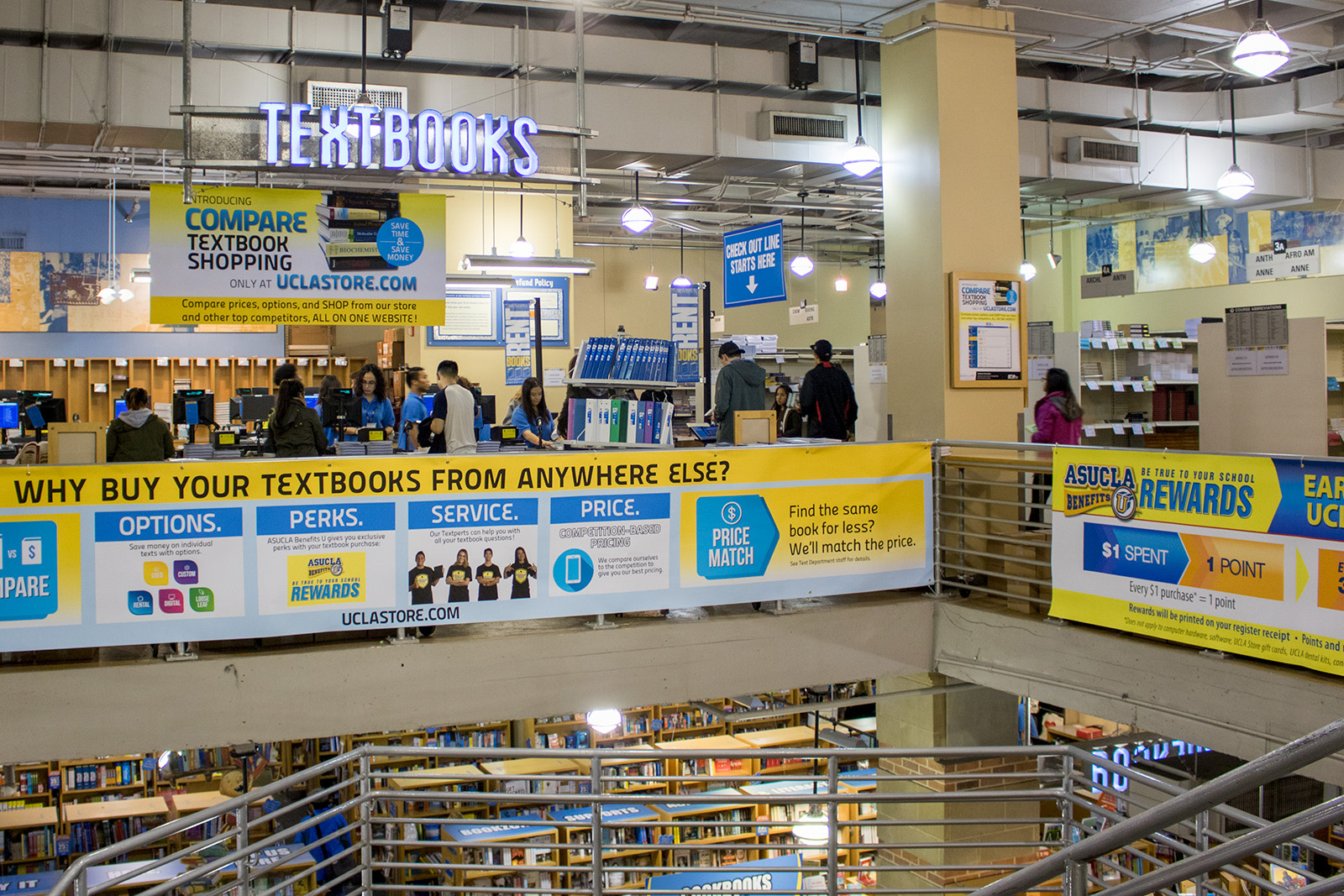International Open Access Week has drawn to a close. And while this global week of action for free and open access to academic resources has ended, the conversation on accessible knowledge and affordable textbooks remains undiscussed by the community it affects the most: students.
With class registration beginning, that age-old question of why textbooks are so expensive continues to ring in the heads of UCLA students.
This question is fresh in students’ minds every quarter as they are forced to purchase hundreds of dollars worth of course materials. It’s an issue that we students have accepted as just being a part of college life, but that doesn’t mean we aren’t suffering.
According to U.S. Public Interest Research Group’s 2014 report, “Fixing the Broken Textbook Market,” 65% of students have skipped buying a textbook during college even though 94% of them thought it would hurt their grade. Students are being forced to either purchase the materials that their professors assign them or risk failing that class – and that shouldn’t be a decision students are expected to make.
Andrew De Loera, a third-year communication student, said his experiences confirmed this concerning reality.
“Textbooks are really expensive. I didn’t buy a few textbooks this quarter because I didn’t have the money to pay for them because of other school costs,” De Loera said. “It’s stressful having to consider the cost of textbooks along with everything else – it has been affecting my ability to get my education and succeed in school since a lot of the content covered in readings isn’t covered in lectures but is still on the tests.”
But the cost of textbooks and the inaccessibility of higher education still isn’t discussed, even with all of these detrimental effects on students – especially marginalized students. We don’t have purposeful conversations about knowledge being put behind a paywall because we don’t think there’s anything that can be done.
But this couldn’t be further from the truth.
The solution is simple – implement open-access textbooks University of California-wide. They are faculty-written and peer-reviewed, as well as cheaper or free for students to use. They operate under an open license, allowing professors to tailor their textbook content by working with librarians to get resources to create the textbook.
Students in the California Public Interest Research Group, a completely student-directed nonprofit organization that advocates for the public and students against powerful special interests, have been campaigning to make textbooks more affordable through open access at the UC campuses.
Prabhdeep Rai, a third-year history student and the coordinator for the CALPIRG at UCLA’s Make Textbooks Affordable campaign, said students need textbooks to succeed in academia.
“Oftentimes, students are going hungry, sacrificing housing and their well-beings just so that they can afford their textbooks and do well in school, and that shouldn’t be the case – especially when we have a solution as profound as open-access textbooks,” Rai said. “The UCs and UCLA serve a diverse student body, so we’ll be organizing the support of these students and coordinating our efforts with the libraries, faculty and student government.”
CALPIRG chapters at the UC campuses are working across the state to make textbooks more accessible and affordable by advocating for grant-funded textbook programs on campus and sparking a conversation about this issue and its solution. In fact, the PIRG national textbooks program passed the first-ever pilot program for open-access textbooks through Congress in 2018 and secured over $5 million in funding for the program, proving it has a track record in the open-access world.
Students, faculty and librarians all recognize the detrimental effects that the high cost of course materials have on students’ ability to thrive in school. The UCLA Library itself launched the Affordable Course Materials Initiative a few years ago to encourage professors to move toward open-access materials.
“(It’s) removing barriers to academic and scholarly research without the need for institutional affiliation, subscription or having to go through any pesky paywalls,” said UCLA scholarly communication librarian Jennifer Chan in a video posted by the UCLA Library.
To further bring awareness to open access, the UCLA Library put on events every day during International Open Access Week.
CALPIRG hosted an event Friday of International Open Access Week as well, called “Open Dialogue on Open Access.” It was a discussion hosted by students, for students, and highlighted the importance of opening up this dialogue among students so that we can raise awareness and support for the profound solution to expensive textbooks: a UC-wide, grant-funded, open-access textbook program.
It’s mostly a matter of implementation. Students want and need affordable textbooks, and a UC-wide open-access textbook program is the answer. The California Community Colleges and California State Universities have established themselves as national leaders in the open-access movement with similar programs. As a premier institution, the UC has a responsibility to students to continue making education more accessible and affordable for it diverse student body by doing the same.
Granted, the UC Regents have already taken steps and advocated for academic accessibility by going all-in on open-access journals. It is vital that students, faculty members and librarians work together with the UC Regents to continue taking these steps into the open-access world in order to make knowledge accessible and textbooks affordable.
Even though International Open Access Week might be over, this is still a conversation we need to have.
Sihota is a first-year political science student and an intern for the CALPIRG Make Textbooks Affordable campaign.

